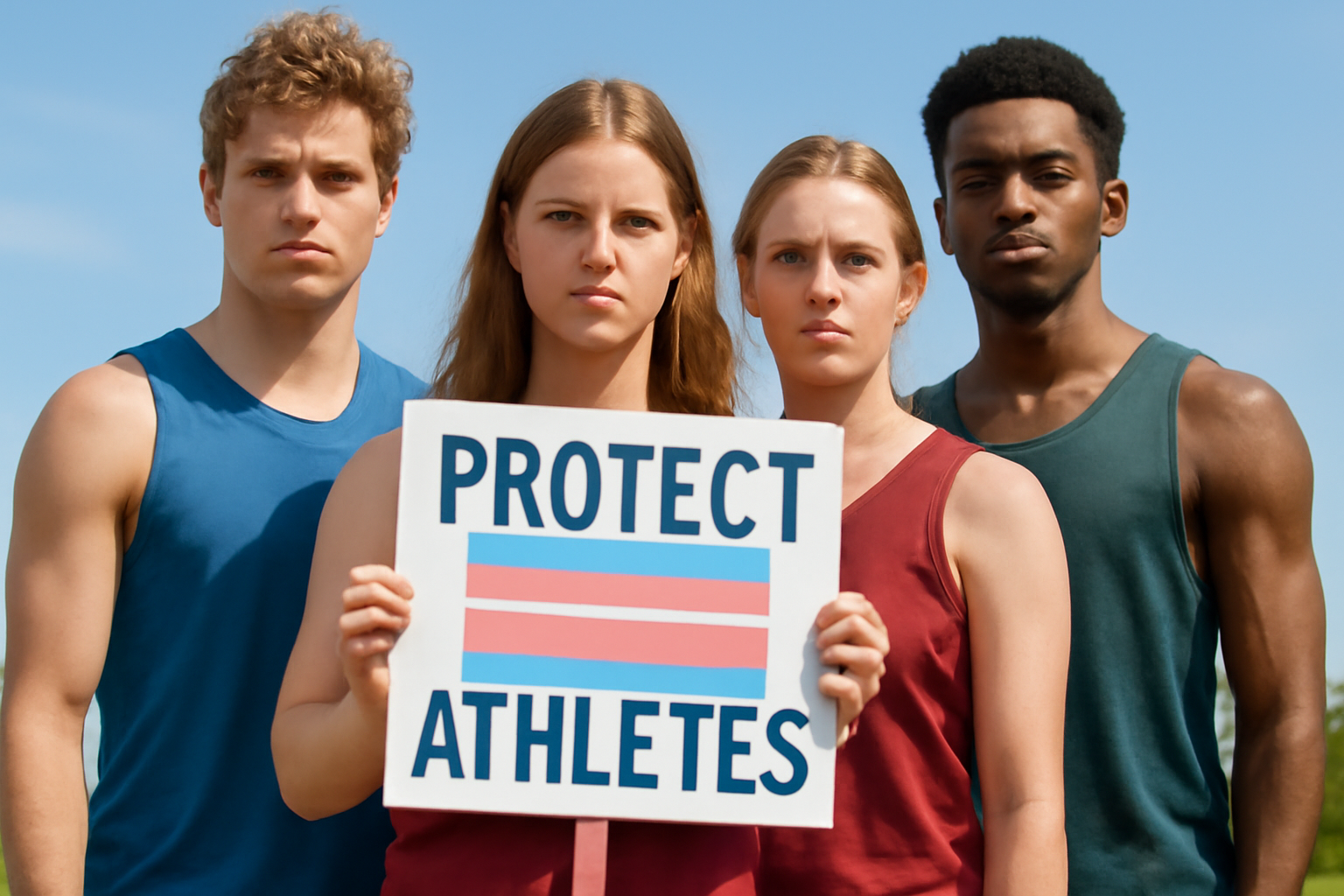
In New Hampshire, a group of determined student athletes are stepping up to champion the rights of transgender athletes by challenging recent federal directives that they believe are discriminatory. The movement, led primarily by young athletes from various schools, aims to ensure that sports remain inclusive and supportive for everyone, regardless of gender identity.
The Background of the Controversy
The debate over transgender athletes' participation in sports has been a contentious topic in recent years. Many federal policies have been introduced, which some argue unfairly target transgender individuals, particularly in the realm of school sports. These policies often suggest placing restrictions on transgender athletes, such as requiring them to compete according to their sex assigned at birth, rather than their gender identity.
For many transgender students, sports are not just extracurricular activities but a vital part of their identity and community. Being part of a team offers these students a sense of belonging, camaraderie, and confidence. However, policies that exclude or discriminate against them can have profound negative impacts on their mental health and overall well-being.
Students Taking a Stand
The student athletes in New Hampshire are not taking these challenges lightly. With the support of local advocacy groups, they are organizing rallies, speaking at school board meetings, and using social media to raise awareness about the issue. Their efforts have gained significant attention both locally and nationally, as more people join the conversation about the rights of transgender athletes.
One student leader, Alex Thompson, a high school junior and track athlete, explained, "Sports should be a welcoming space for everyone. Excluding transgender athletes not only harms those individuals, but it also diminishes the spirit of competition and inclusivity that sports are supposed to foster."
Support from Local and National Organizations
Several advocacy groups have rallied behind these students, providing legal advice, organizational support, and platforms to amplify their voices. Organizations such as GLSEN and the ACLU are offering resources to help educate both students and the broader community about the importance of inclusive sports policies.
The movement in New Hampshire is part of a broader national trend, where states and local communities are increasingly challenging federal directives that they see as unjust. The courage displayed by these young athletes serves as an inspiration to others facing similar challenges across the country.
Why Inclusivity in Sports Matters
Inclusive sports environments are crucial for fostering a sense of belonging and promoting overall mental and physical health. For transgender students, being able to participate in sports according to their gender identity is not just a matter of fairness but also one of dignity and respect. Exclusionary policies do not just impact the athletes themselves but also send a broader message about who is welcome in various spaces.
Studies have shown that participation in sports is linked to numerous positive outcomes, including higher self-esteem, better academic performance, and improved mental health. When transgender students are barred from participating, they miss out on these benefits, which can have long-term effects on their development and well-being.
The Path Forward
As the conversation continues, the student athletes in New Hampshire are hopeful that their actions will lead to meaningful change. They are advocating for policies that recognize and respect the identities of all athletes and ensure that everyone has the opportunity to compete in a fair and supportive environment.
Their efforts underscore the importance of listening to young voices and recognizing the impact of policies on the lives of individuals. The fight for inclusive sports is far from over, but the resolve and determination of these students show that progress is possible.
Looking ahead, the focus will remain on education, advocacy, and building alliances with supporters across various sectors. The students hope that through persistent advocacy, they can help create a sports culture where everyone, regardless of their gender identity, feels welcome and valued.
Related Posts
Triumphant Trans Woman Wins Legal Battle and Inspires Others to Stand Up for Their Rights
Breaking new ground: a landmark victory in transgender rights After battling in courtrooms and enduring endless challenges, Diana Portillo, a transgender woman, has secured a monumental victory in her decade-long fight against workplace discrimination. The result? Nearly $1 million awarded in a historic settlement. But this isn't just a win on paper—it represents a powerful precedent in combati [...]
Pride Month in Latin America: Protests and Demands for Equality
**Celebrating Pride and advocating LGBTQ+ rights in Latin America** Pride Month in Latin America was a lively mix where celebration met activism. Communities united, not just throwing a party but making a stand—demanding equality and pushing governments toward better protection and rights recognition. Throughout Latin America, pride events erupted in marches and cultural displays, each with a c [...]
Transgender Erasure Actions Implemented by National Park Service
```html Trump administration's impact on national park service and transgender recognition The Trump administration made notable moves in undermining transgender representation, which included directing agencies like National Park Service not include "T" and "Q" when they refered “LGBTQ” in any official communication. This move seems part a broader plan by this administration aimed at reducin [...]